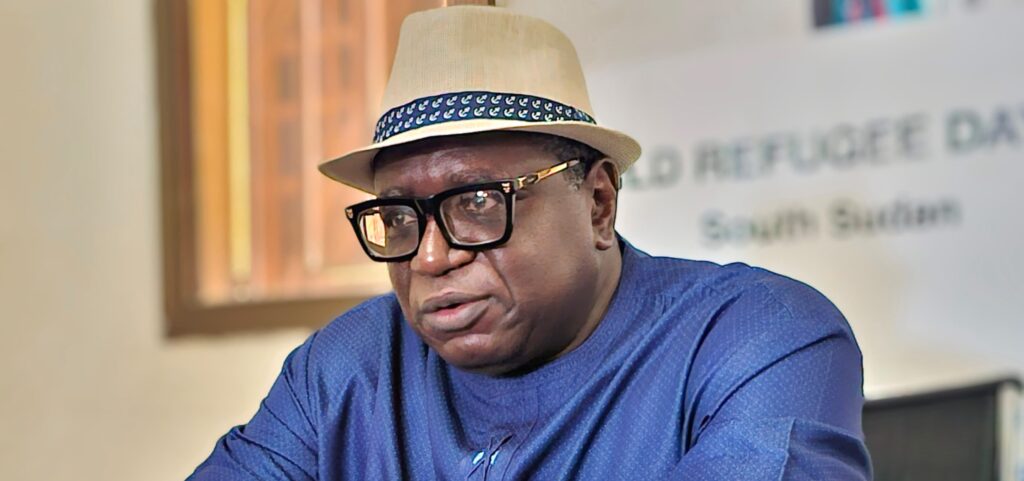A high-level African Union (AU) delegation wrapped up a humanitarian assessment mission in South Sudan on Friday, evaluating the country’s capacity to handle a worsening refugee crisis fueled by the ongoing conflict in neighboring Sudan.
Led by Ambassador Churchill Ewumbue-Monono, the AU’s Permanent Representative, the delegation assessed conditions for refugees, returnees, and internally displaced persons (IDPs), inspected AU-backed education projects, and reviewed South Sudan’s adherence to African migration protocols.
“This is more than just an assessment; it’s about action. We’re shifting from policy to tangible support,” Ewumbue-Monono told journalists in Juba. “We donated $500,000 for classroom construction in Gorom and provided food and non-food items to refugee communities.”
South Sudan currently hosts over 650,000 refugees, most fleeing Sudan’s civil war, which erupted in April 2023. The Commission for Refugee Affairs (CRA) said arrivals also include people from the Democratic Republic of Congo, Central African Republic, Burundi, Eritrea, and Ethiopia.
John Dabi, CRA Deputy Commissioner, said South Sudan’s progressive refugee policies have made it a regional safe haven. “There is peace here—that’s why they are coming,” Dabi said. “Our Refugee Act is one of the best in the region, allowing urban and rural settlement while prioritizing dignity, movement, and integration.”
However, Dabi warned of mounting strain on resources. The World Food Programme (WFP) has slashed food assistance by more than half, with only vulnerable groups—women, children, and persons with disabilities—receiving limited aid. He added that the U.N. refugee agency (UNHCR) has closed several field offices due to funding shortages.
“How do you host people without being able to support them?” Dabi asked. “Durable solutions like farming and local integration are working, but we need more investment.”
The AU team visited urban refugee settlements and schools in Gorom, reviewing education gaps and distributing scholastic materials.
Ewumbue-Monono acknowledged South Sudan’s progress in implementing the Kampala Convention on IDPs, the AU Free Movement Protocol, and other refugee-related agreements.
“South Sudan has refugee-friendly laws,” he said. “The challenge isn’t policy—it’s the resources to implement them.”
Humanitarian groups echoed concerns over strained capacity.
Fred Bully Cole, Executive Director of the Humanitarian and Development Consortium (HDC), said the influx—nearly a million returnees and refugees combined—is overwhelming the country.
“South Sudan faces its own humanitarian crisis while hosting hundreds of thousands more,” Cole said. “This consultation is critical. We need coordinated responses and urgent donor support.”
Cole highlighted challenges like inadequate documentation and unregulated border crossings, which block many refugees from accessing basic services. He called for stronger systems at informal entry points and more aid for host communities.
The AU mission sought both to assess conditions and rally international support. “Our visit sends a message: these are African problems needing African solutions,” Ewumbue-Monono said. “When the AU shows up, it encourages others to do the same.”
The AU will present its findings to the AU Peace and Security Council.




